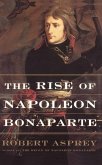In "History of the Rise and Influence of the Spirit of Rationalism in Europe," William Edward Hartpole Lecky meticulously examines the intellectual evolution that led to the emergence of rationalist thought across Europe. Lecky employs an analytical narrative style, richly interweaving historical events, philosophical discourse, and cultural shifts, which marks his work within the tradition of 19th-century historiography. The two-volume set traces the influences of Enlightenment thinkers, the Reformation, and scientific advancements, offering insight into how these elements converged to foster a spirit of inquiry and skepticism that would reshape European society. William Edward Hartpole Lecky (1838-1903) was a prominent Irish historian and political theorist known for his commitment to rationalism and liberalism, which are apparent in this work. Influenced by the tumult of his times, including the decline of religious orthodoxy and the rise of secular humanism, Lecky aimed to contextualize rational thought as a transformative force in European history. His extensive education and involvement in political life informed his critical approach towards societal progress rooted in reason. This comprehensive analysis is essential reading for anyone interested in the intellectual history of Europe, as it provides not only a deep dive into the philosophical undercurrents of the era but also a broader understanding of the dynamics between reason and belief. Lecky's eloquent prose and keen insights invite readers to reflect on the enduring legacy of rationalism and its influence on contemporary thought.
Dieser Download kann aus rechtlichen Gründen nur mit Rechnungsadresse in A, B, BG, CY, CZ, D, DK, EW, E, FIN, F, GR, H, IRL, I, LT, L, LR, M, NL, PL, P, R, S, SLO, SK ausgeliefert werden.









